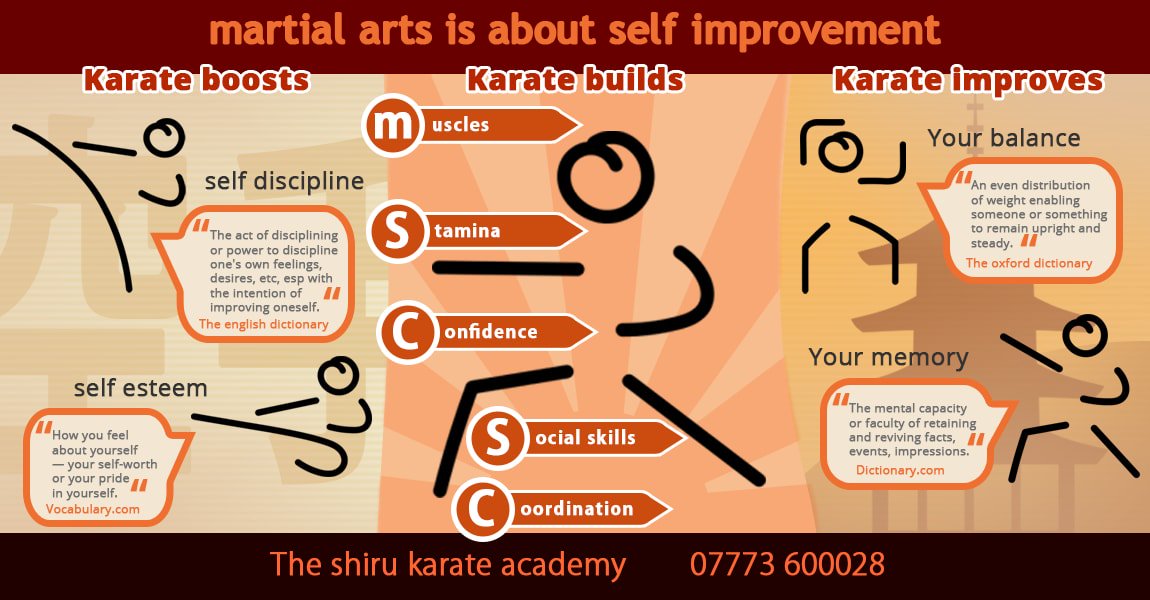The Result Of Young Age Martial Arts Participation On Scholastic Success And Attention
The Result Of Young Age Martial Arts Participation On Scholastic Success And Attention
Blog Article
Composed By-Matthews Lyhne
Step onto the mat of expertise and discover the hidden power that youth fighting styles have.
Like a well-sharpened sword, the effect of these ancient practices on academic efficiency and focus is a force to be reckoned with.
As you explore the midsts of this discussion, you will certainly discover the possibility for enhanced cognitive capabilities, improved focus abilities, and a considerable boost in scholastic efficiency.
Yet the trip does not end there, for real keys lie within the pages yet to be checked out.
Enhanced Cognitive Capabilities
Improved cognitive abilities have actually been observed in youth who participate in martial arts. By taking part in martial arts training, you can improve your cognitive features such as interest, emphasis, and memory. The physical activities and techniques associated with fighting styles need mental sychronisation and focus, resulting in enhanced cognitive abilities.
Researches have actually revealed that regular participation in martial arts can enhance data processing speed and exec features, which are critical for academic success. Martial arts training also aids to boost problem-solving abilities and decision-making capacities, as experts find out to assess and react rapidly to various situations.
In addition, fighting styles practice advertises discipline and self-constraint, which are vital high qualities for efficient knowing and scholastic success.
Boosted Focus Abilities
Just how can martial arts educating boost your ability to focus?
Martial arts training can greatly boost your concentration skills. With martial arts videos for beginners of various techniques and activities, you're needed to focus your focus on the task available. This continuous interaction aids to train your mind to stay existing and concentrated.
Fighting https://abc7news.com/vallejo-arson-fire-alex-bello-good-samaritan/13491952/ instruct you to block out diversions and keep a high level of focus even in stressful scenarios. The repeating of movements and methods during training assists to develop muscular tissue memory, enabling you to carry out activities with precision and effectiveness.
Additionally, martial arts training commonly integrates mental exercises such as reflection and mindfulness, which better enhance your capacity to concentrate and maintain emphasis.
Boosted Academic Efficiency
Martial arts training can significantly boost your scholastic performance by fostering discipline, focus, and self-confidence.
When you exercise martial arts, you discover to establish objectives, develop regimens, and manage your time efficiently. These abilities equate into enhanced research study practices and much better scholastic performance.
Fighting style also educate you to stay focused and concentrate on the task handy. This enhanced ability to concentrate can considerably profit your understanding experience, enabling you to soak up and keep information better.
In addition, the self-confidence obtained with fighting styles can favorably influence your scholastic performance. Relying on on your own and having a favorable frame of mind can assist you get over challenges, take threats, and reach your full academic potential.
Final thought
Young people fighting styles have a substantial impact on scholastic efficiency and emphasis.
https://top-leaders-martial-arts21976.blogdun.com/34504146/prepare-to-improve-your-mental-acuity-and-emotional-strength-with-martial-arts-opening-a-course-to-inner-strength-and-self-discovery shows that pupils that take part in martial arts experience boosted cognitive abilities, improved concentration abilities, and increased academic efficiency.
Actually, a research study discovered that students who participate in normal martial arts training have a 15% greater GPA compared to those who don't.
This statistic highlights the favorable relationship between martial arts and academic success, highlighting the relevance of integrating such activities into the lives of young people.
